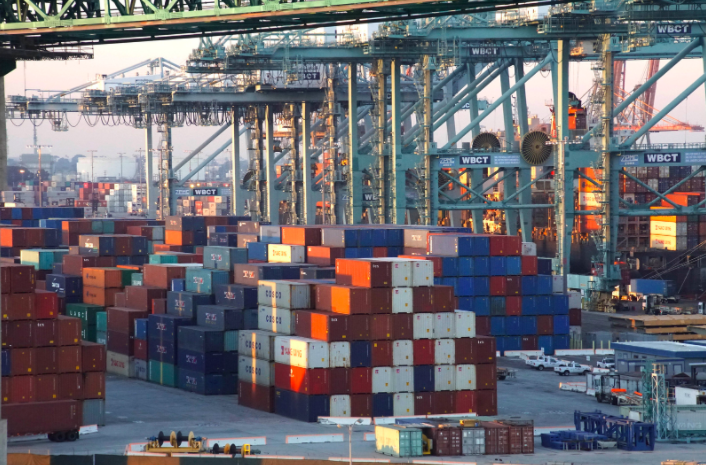West Coast ports experience heavy congestion and delays

As congestion of container vessels at the ports between Long Beach and Los Angeles, California continues, perishable produce is looking at staying on the water for much longer than normal.
“What has been a lingering problem for months has all come together to form a perfect storm,” Ron Gill, the Operations Manager at Bengard Marketing told FreshFruitPortal.com.
What the industry is seeing is that quality is suffering accordingly, for example, fruit that would normally have a three week transit period via container from Chile is now seeing five to six weeks on the water instead, he said.
Sensitive fruits such as peaches, apricots and cherries are “suffering tremendously” from the unpredictable arrival schedule, he said.
Even as volumes start increasing, there may be more congestion after getting the product to storage as it may be subject to repacking to get rid of problem fruit or even facing delays due to survey claims.
According to Gill, so far demand for perishable fruits is exceeding supply, but there may be gaps in the market followed by surges, eventually leading to some price instability.
Regarding Peru specifically, all grapes are subjected to a cold treatment upon arrival which means adding a few days on top of the same delay faced by all other containers.
Some shipments from Peru are being redirected to Port Hueneme, where “restrictions are less and timing of discharge is much better as they don’t have the same congestion issues as L.A."
Although there are some ports that are more efficient than others in releasing the product, there is “rarely a vessel that arrives and is operational, especially for perishables”, according to Gill.
However, many exporters are converting over to bulk vessels that have their own terminal, along with operations that aren’t as impacted as the container vessel terminals are.
Even though the bulk vessel shipments are more predictable, the frequency of arrivals is much less than shipping via container vessels.
“This is going to be playing out for at least another month, but we are optimistic that the worst is gradually behind us,” Gill said.
“As for right now, the situation is to hurry up, wait and hope that today is the day when the vessel can be unloaded.”














































